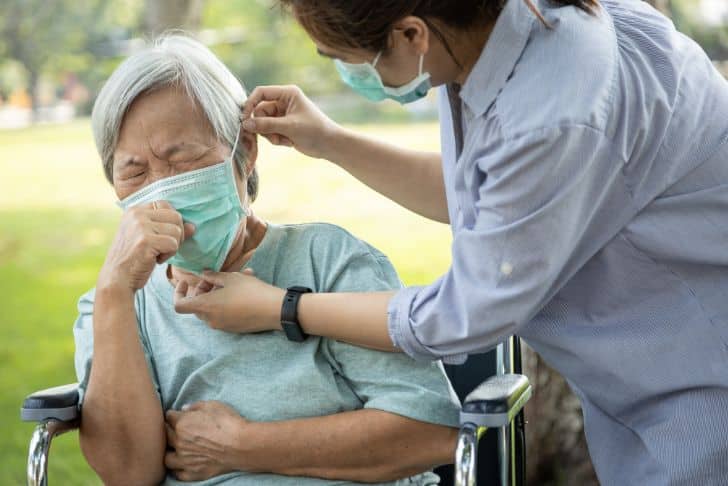Helping your senior loved ones stay organized and remembering to take their medications can be quite a task. But with some practical tips and careful planning, it can be made much easier. This article, penned by Clare Absher, a seasoned nurse with 44 years of experience, covers various strategies to manage medications, practical organizational tips, memories triggers and much more. It provides you a wealth of knowledge and a variety of suggestions around medication management, from automating reminders, to physically placing medicines in a visible place. Remember, the end goal is to find an easy-to-follow routine that ensures your dear ones take their required medicines on time. Keep in mind that the method that’s a win for one may not work for another, hence, go for a trial and error approach to find what works best. So, fasten your seatbelts for some journey to simplified caregiving!
Remembering to Take Medication
Sticking to your medicinal routine is crucial for maintaining your health. We understand that managing your medications can sometimes be challenging, but with proper organization and reminders, you can minimize the chances of missing out on medications.
Setting Medications in a Visible Place
Placing your medications out in the open can be a great reminder for you to take them. Choose a spot that you frequent daily, such as your kitchen table or beside your toothbrush in the bathroom. Remember, out of sight, out of mind. So, keep those medications in sight always!
Associating Medication with Daily Activities
It’s helpful to link taking your medication with something you do daily. For instance, taking your pills after brushing your teeth, or consuming them after meals can be a simple and effective way to remember your medications.
Creating a Comprehensive List of all Medications
Lists are a great way to stay organized. Not only can you track your medications, but it’s also invaluable during medical consultations. Enlist all your medications in the list, including over-the-counter meds, prescription drugs, and even nutritional supplements.
Utilizing Automatic Pill Dispensers
Want a gadget that does the reminding for you? Then an automatic pill dispenser comes in handy. They can send out multiple alarms throughout the day, making it practical for anyone and especially seniors with dementia, for instance.
Programming Medication Alerts on Smart Devices
If you’re an individual who always has your smartphone or smartwatch at your disposal, consider programming medication alerts. This approach can be useful if you need occasional prompts to take your medicines.
Using Traditional Timers or Alarms for Reminders
An alarm clock or a timer can work wonders if you prefer traditional ways. However, it requires you to respond to the alarm promptly and someone responsible to regularly set them up.
Getting Assistance from Caregivers, CNAs, and HHA’s to Monitor and Remind About Medications
If you require extra assistance, consider hiring a certified nurse aide (CNA) or a home health aide (HHA). Their roles can include reminding you to take medicines, monitor any medication problems and even handle prescription refills for you.
Organizing Medications Effectively
While remembering to take your medicines is vital, it’s equally fundamental to keep them effectively organized to avoid confusion or potential mishaps.
Using Individual Medication Cups or Containers Placed in Specific Locations
Get individual medication cups or containers and place them in specific spots around your home. This practice can ensure you consume your medications at the designated time, making it a fruitful way to organize your meds.
Recording Medication Consumption in a Calendar or Binder
A written record of your medicine consumption can prove beneficial. You can cross through or check off the drugs you took each day in a calendar or a binder.
Separating Daily Medications from ‘As Needed’ Medications
Ensure you segregate your daily medications from those meant for special circumstances. Doing this can offer greater clarity and prevent any confusions.
Storing Medication Bottles for Easy Viewing and Identification
Consider storing your medication bottles in a transparent shoe holder or multipurpose rack for better organization and visibility. Group similar medications in the same row or bin for easy access.
Labeling Medication Bottles Clearly and with Large, Easy-to-Read Details
Whenever possible, use large fonts and clear labeling on your medication bottles. Details such as the time of day the medicine should be taken or quantity can be beneficial.
Designating a Portable Container for Travel or Doctor Appointments
It’s imperative to carry your medications wherever you go. Designate a container specially meant for traveling, which can house all your necessary medications. An old lunch box, a cosmetic bag, or even a small suitcase can suffice!
Using a Pill Box to Manage and Monitor Medication Consumption
Consider investing in a pill organizer. It offers multiple compartments to manage your meds and helps you keep track of medicine intake. Remember, an empty compartment indicates that you’ve taken your dosages!

Incorporating Technology to Assist in Medication Management
Technology has the power not only to remind us about our medicinal schedule but also to help us get refills on time.
Utilizing Medication Management Applications
Several apps can help manage your medications. Choose an application that suits you based on features, such as alerts or refill reminders.
Exploring Internet-Connected Pill Dispensers
Some pill dispensers are Internet-enabled and offer features such as emergency calls to family when doses are missed. If you’re tech-savvy, this could be a great add-on to your medication management plan.
Setting up Reminders on Smart Devices
Smart devices offer in-built reminders or alarms that you can leverage for your medication schedule. Ensure you keep your device handy to catch the alerts!
Signing up for Pharmacy Notifications and Prescription Refill Reminders
Several pharmacies offer notifications for refills. Consider subscribing to these notifications, as it can assist in ensuring you’re never out of required medications.
Communication with Healthcare Provider About Medications
Frank and open communication with your healthcare provider regarding your medication can make your medication management much smoother.
Understanding the Purpose and Instructions for Every Medication
When your healthcare provider prescribes a new medication, make sure you understand why it’s needed and how to take it correctly. Clear up any doubts or queries regarding the medication before leaving the doctor’s office.
Discussing Possible Side Effects and Interactions
Keep a tab on possible side effects and interactions that your medication may have with your lifestyle, diet or any other medications you’re taking. Your healthcare provider can guide you in this aspect.
Knowing When and How to Get Refills
Running out of medication and waiting until the last minute to get a refill can hamper your medicinal routine. Make sure you know when and how to get your refills, and whether your healthcare provider needs to approve it.
Involving Family In Medication Management
Family members can play an instrumental role in supporting you in keeping track of your medications.
Educating Family Members about Medications
Understanding your medications can help your family offer you better assistance. Make it a point to discuss your medicines with your family members, explaining when and why you take each one.
Setting up a Shared System for Medication Monitoring
Consider a shared system where your family members can help monitor your medication. It could be something as simple as checking the pill box, or counting remaining pills from time to time.
Arranging for Family Reminders and Check-ins
Having your loved ones routinely check-in or remind you about your medication can put you at ease and ensure that you don’t skip any dosage.
Maintaining Healthy Lifestyle Habits to Complement Medication Management
Taking your medications on time is just one part of maintaining your health. Incorporating a healthy lifestyle can significantly complement your medication regimen.
Regular Physical Activity
Physical activity can boost your health and enhance the effectiveness of your medications. From as simple as walking to as intense as weightlifting, choose an exercise that suits you the most.
Balanced and Nutritious Diet
A balanced diet can ensure you get all the vital nutrients your body needs. Depending on your health condition, you might want to consider working with a dietitian to establish a routine meal plan.
Adequate Rest and Sleep
Never underestimate the power of good sleep! Rest and sleep can give your body the time to repair and restore, augmenting the effects of your medication.
Regular Health Check-ups
Regular check-ups allow your healthcare provider to monitor your condition and the effectiveness of the prescribed medications. It also provides an opportunity for timely adjustments to your medication regimen.

Avoiding Common Mistakes in Medication Management
Valuable as it is to remember to take your medication rightly, it’s equally important to avoid common miss-steps in medication management.
Avoiding Skipping Doses
It’s crucial to take your medicines at their scheduled times and not to skip any dose. Skipping a dose could potentially hamper your treatment plan.
Avoiding Doubling Up on Missed Doses
In case you miss a dose, don’t panic and certainly don’t take a double dose to make up for the missed one. It’s best to stick to your regular schedule or consult your healthcare provider if you’re unsure.
Avoiding Mixing Medications without Consulting a Healthcare Provider
Certain drugs can interact with each other and may cause adverse effects. Ensure you discuss with your provider before starting any new medication.
Educating Seniors about the Importance of Medication Adherence
Seniors often struggle with managing their medications. However, understanding the importance of medication adherence can encourage better compliance.
Understanding the Role of Medications in Managing Health Conditions
Medications play a critical role in managing various health conditions. Clarify with your healthcare provider about your medications, and know why it’s important for you to adhere to them.
Recognizing the Risks and Consequences of Poor Medication Adherence
Poor medication adherence can lead to various complications, including worsening of the health condition, slower recovery, or even hospitalization. Become aware of these risks and take your medications as directed.

Coping with Side Effects
All medications could potentially cause some side effects. Here’s how you can cope with them effectively.
Recognizing Potential Side Effects
Arm yourself with knowledge about the potential side effects of your medications, and be vigilant.
Discussing Side Effects with Healthcare Provider
If you experience any side effects, it’s best to immediately connect with your healthcare provider. They can guide you properly and make alterations to your medication regimen if needed.
Knowing How to Manage Minor Side Effects
For minor and expected side effects, your healthcare provider can guide you on how best to manage them. Stay prepared for these, but let your healthcare provider know if any uncomfortable symptoms persist.
Engaging in Regular Medication Reviews
Regular medication reviews can help you stay on top of your medication management game.
Scheduling Regular Medication Reviews with Healthcare Provider
Plan regular reviews with your healthcare provider, where they can evaluate the effectiveness of your medications, and make any necessary changes.
Keeping an Updated List of All Medications Including Prescription, Over-the-Counter, and Natural Supplements
Maintain an updated list of all your medications, and share it with your provider during your reviews.
Discussing Any Changes in Medication Regimen During the Review
Ensure you discuss any changes made to your medication regimen during your reviews. It’s essential to make your healthcare provider aware of any new medications or supplements you have started taking.
In conclusion, we understand managing medications can be quite a task, but remember, you’re not alone in this journey. Whether it be a caregiver, a healthcare professional, or loving family members – support is always available. So gear up, step into a healthier future, and keep those medications in check!


